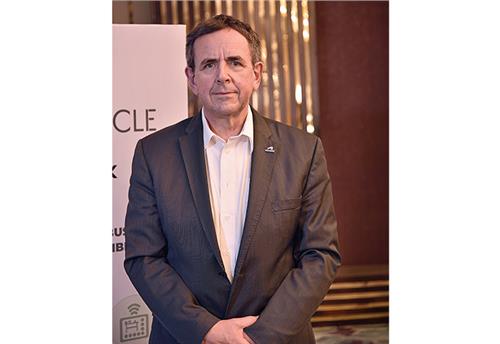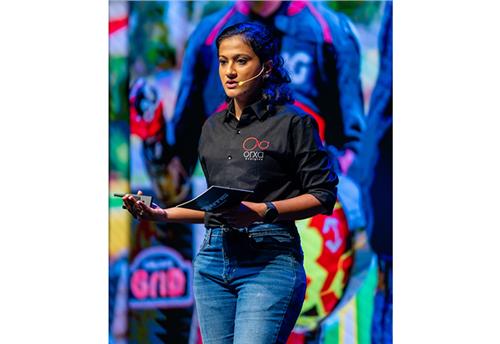Anjali Singh: ‘For Anand Group, collaboration is simply a way of life. If you are firm and persuasive, you can really get very far.’
In this Women's Day Special, Anjali Singh, Executive Chairperson, Anand Group & Gabriel India, explains what it takes to harness the best from collaborative partnerships with global majors and drive change in a disruptive era.
The well-diversified automotive component major has built, led and sustained 12 JVs and 7 technical collaborations with renowned global partners including Mahle, Faurecia, Valeo, Dana, Mando, Joyson Safety Systems, CY Myutec, Henkel and Haldex. At present, nearly 20 percent of its workforce comprises women and the plan is to increase it to 30 percent in the coming years. Anjali Singh, Executive Chairperson, Anand Group and Gabriel India, tells Mayank Dhingra what it takes to win friends and influence industry. She also offers some insight into how women can drive change in what is a male-dominated manufacturing sector.
Is the Anand Group's collaborative approach paying off in the ongoing disruptive times in the automotive industry?
We see so much now globally in terms of two giants coming together to take on the challenges that the industry faces. Because of all the disruptions coming in, partnerships are going to be key. And it involves a great deal of capital, research, human and financial energy. Without collaboration, I really don't know how one would move.
For the Anand Group, collaboration is simply a way of life. The tenets for us are partnership and people. Those are the cornerstones of everything that we have done. Maybe one could say that we were ahead of the game or it's in our DNA. Basically for us, to be the best in technology, processes, manufacturing and governance systems, we have followed this route of having partnerships and it has held us in very good stead.
We have grown from strength to strength over the past six decades with this philosophy. It is obvious for us, whether going into the electric or electronics space, that partnership is still the way forward.
What are the essential elements to a longstanding association and would you see the nature of your partnerships change as you go forward?
We share deep trust with our partners and the ability to drive business together with synergies. That comes from healthy respect for each other's attributes. While they bring the best in technology from all over the world, we bring them the knowledge of India and hence, we have managed to capture almost every OEM in India and have been successful through this model.
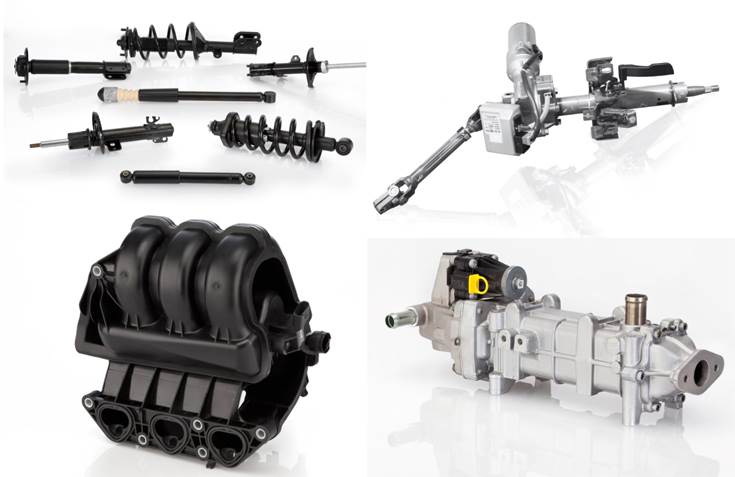
The Anand Group, which has 12 joint ventures and 7 technical collaborations with global majors, manufactures a comprehensive range of products and solutions for automotive.
Yes, there is always a cycle to business. As you start a company, it requires a lot of support from both partners. Then, if you like, it matures into a teenager and has some teething problems, and eventually becomes an adult. Of course, global giants also feel like they can come in and do it on their own. But the Anand Group’s strength has been to be relevant and be very close to its partners. We are probably one of the very few organisations that have managed to steer through all kinds of ups and downs as well as economic trends to remain steadfast with our partners. I think that is because of this deep trust.
When we ink new collaborations, they may be with many people from the East or still from Europe who are looking to come to India with new technologies. They see Anand as an obvious partner because of our healthy track record. The change is only going to be that there will be new partners.
Was BS VI a challenge and how did you manage to steer through it?
Each one of our partners offers value and has been a real pillar of strength through this transition. This is where our partnership model has really stood the test of time because we have been able to leverage all the challenges that have come our way because of our partners. We are proud of the fact that we have been combating this challenge together and without a technology partner like we have for most of our products, it would really be very difficult.
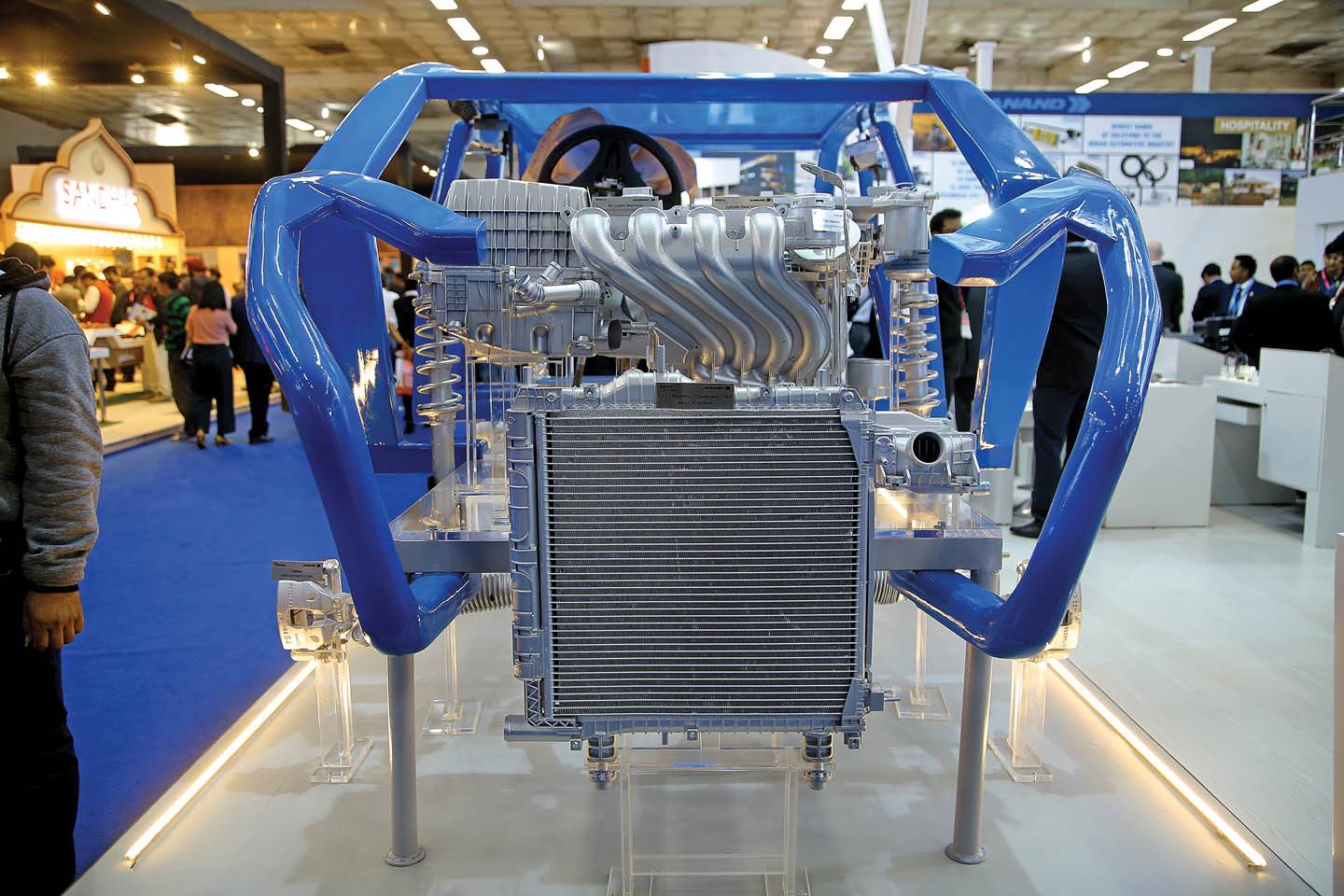
Having said that, we have had the support of our customers as well, because they are in the same boat as us. Whether it's the customer, the supplier, or the entire chain, everybody's actually been working night and day together to a common purpose to realise the challenges together. Customers have provided a lot of support on this BS VI transition by heavily planning and aligning us all to be BS VI-ready. That is something we have to also thank them for understanding the pain that the entire supplier community has also gone through and supporting us through this.
Do you think there is more scope for VA/VE and localisation in the parts related to the new norms?
I think a fair amount of work has happened already. And now, through this latest hit of the Coronavirus, there will be a real push on localisation besides the government already encouraging make-in-India. The OEMs are also very clear that localisation to another level is a must.
I don't think anybody can go to survive without already traveling the localisation journey. Yes, they all have, but now it will be accelerated even further. There will be more sites producing smaller numbers. The industry in general, whether it is the automotive industry, telecom or any kind of electrical or electronics industry, will no longer have mega production hubs, because they can basically be threatened by any kind of calamity or natural disaster and cause a worldwide crunch as we have seen with the Coronavirus.
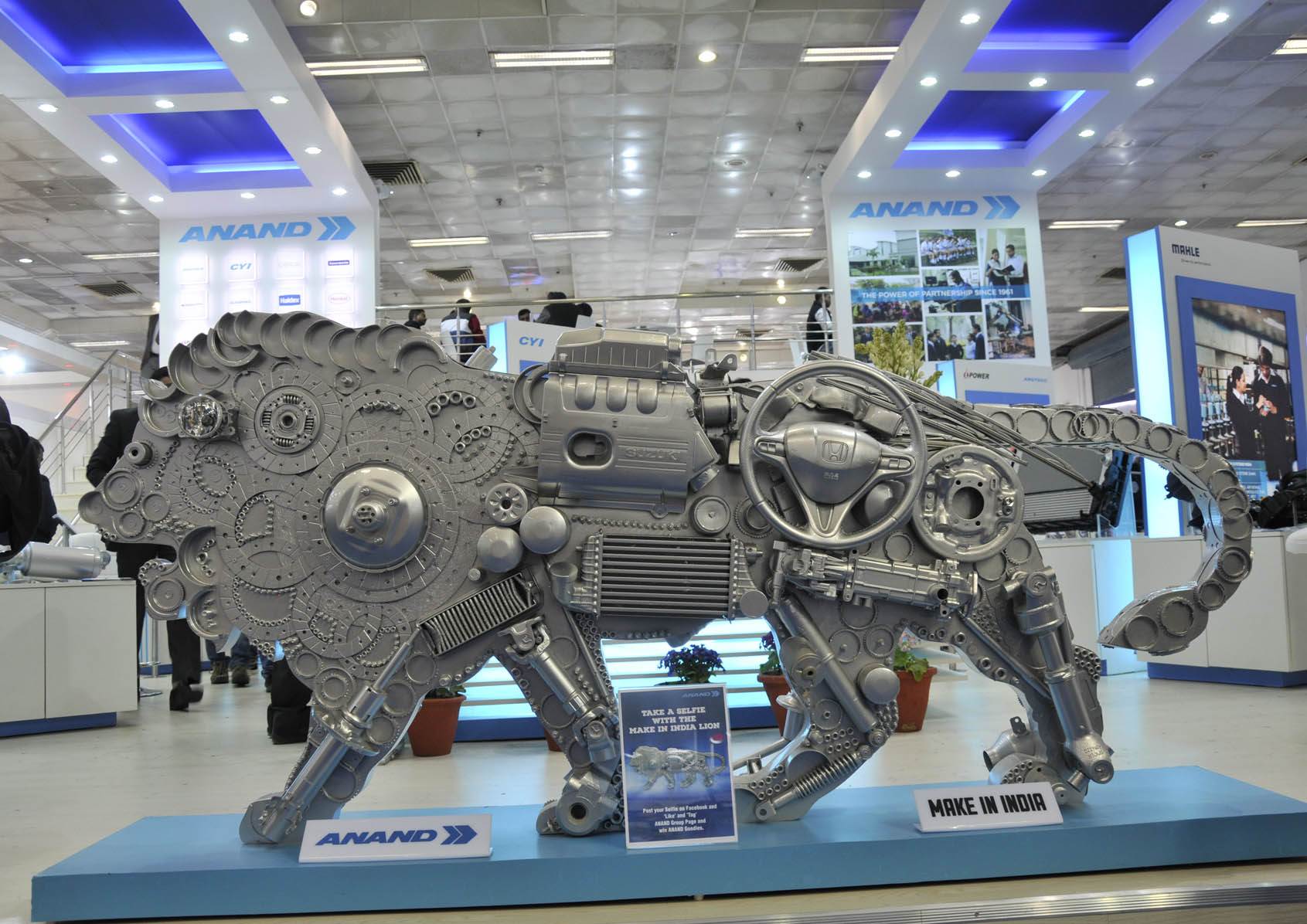
So, I think this will change the way footprint happens. And many countries will benefit, whether it is Bangladesh, Sri Lanka or India. Currently, everybody just wants to stay afloat for March-April. They are concerned about part numbers and where things are coming from so that lines keep running smooth. And obviously there is a major slowdown in overall numbers. So, everybody is coping with the present day, but I am sure future planning will start very soon.
How easy or difficult has it been for you as a woman in what is a male-dominated industry, especially in a leadership role?
I've always felt it's actually been an advantage to be a woman. If you are firm and persuasive, you can really get very far. It's never ever come into my mind that it's in any way a disadvantage to be a woman. Of course, there are challenges.
The words ‘disadvantage’ and ‘woman’ don't, in my mind, go together at all, not even in the manufacturing industry, honestly. But I think what is a challenge for women as they grow and as they develop is all the different things that women have to manage – their married life, the children, their work, their own personal time, which I think is very important. And to manage all these things together, I think women have a great challenge.
I am a firm believer in the Indian joint family system, where you can have a lot of support from the elders of the family. If people used that effectively, then women would really have much more time and less guilt if they were to use that and not look at nuclear families, which seem to be the direction most people are going in now. Certainly for me, the elder generation – my husband's side of the family and mine – are big support systems and provide a great bridge for me when I have an overload on my plate. That's definitely one aspect.
The other thing that I always like to give as a message to any woman is not to compromise on their physical activity. That if entering into your late 20s, early 30s or early 40s, when you're really pushed for time with children and also that's the career peak, if you are not taking small amount but adequate time out to do some physical activity, your mind cannot be sharp and you simply cannot have the energy it requires to be an MD or a CEO or to be a good parent, because you're just not taking care of what is the enabler. That's a message that I feel doesn't come out enough. You don't have to be very hard on yourself; whether you take up yoga, walking or running which are some of the things that you can do anywhere. So, make it easy but do it.
What qualities does a woman bring to the table and contribute to a happy and successful workplace?
There are two very important things – Communication or the ability to communicate, and the ability to listen. I often find that one gets to a certain ceiling and is either talking at people or not listening anymore. Both those qualities are absolutely essential, be it a man or a woman. But I think women can be very good about these things, and they can use it very effectively in management terms.
What would you recall as being your most crucial decision as the executive chairperson of the company?
If it's in terms of the structure between Anand and its partners, then that would be our recent merger of our JV in the area of safety - Takata with Key Safety Systems. It's a first of a kind at Anand as it was a three-way merger. But the fact that we took a difficult situation and turned it into what I think is a successful attempt by being No. 2 in this segment now globally, I think was a good decision.
Internally at Anand, I think it would be the launch of the quality system – the Anand ‘House of Quality Culture’. Third would be bringing a sense of urgency within the organisation. When you have an organisation with many different arms and many decades of culture, which while is very positive but can also require you to bring it into 2020 with a sense of urgency. It is has been bringing that through IT systems, communication and also through dialogues with the top management. Urgency is the need of the hour.
Can you highlight some important CSR initiatives that the company has taken over the past year, and which would be the closest to your heart?
Sustainability as an overall topic is very important for us as a family, both my husband and I. It is very close to our hearts, not only from a perspective of how we're leaving the planet, but also for the environment in which our people are working for us. So I think pushing our companies towards a goal of zero emissions, being very sustainable, very conscious and living consciously is something that I think we have worked hard upon.
From a CSR perspective, we have learnt a lot from the TVS Group as they have this ‘Village Buddha’ concept. To give you a description, it is a holistic approach to making a village self- sufficient when you leave it, rather than just looking at sanitation or skill development or education, but touching upon all those aspects and spending much more time and going deep into the one area that requires assistance, and finally leaving it on its own two feet.
That is something that we have taken up over the past few years besides all the programmes we were running on skill development, women's education, sanitation and other things. This has now particularly become a focus on the way how we want to drive it. For my father, the main thing has really been education through and through. I think for me, going forward, this concept of really holistically looking after a particular region and leaving it self-sustainable is something that I believe in strongly. We're doing this in various cities in Maharashtra and Rajasthan at the moment.
Given the increasingly fast-paced nature of how work is being done in the industry, are you making inroads into digitalisation at Anand?
We have done a fair bit of work and there's still more to be done. But certainly, we have got to the stage where we can do our business fairly easily from anywhere that we are in the world and it is very important for me to be able to have those strong IT systems to move us into this next decade, where if we are planning going into new products, we need to be strong on IT and we are doing that.
Talking about IT, which is your favorite gadget?
I am a complete believer in the fact that the handheld device has not just ruined our lives but also enabled it. Honestly, I do just about everything on my phone – from designing new hotels to running meetings to everything. The phone is an incredible gadget, it's an incredible tool. It makes you able to be mobile in a way that is quite phenomenal.
I like to spend a lot of time in the wilderness. It is very important for me and my family to spend time with nature, and the mobile phone allows you to be able to give yourself some time management between office and home.
How do you spend your time while you're in flights?
Unless I absolutely have to, I do try not to log on to the internet on the flight. I think that is one of the old bastions of space where you don't need to do that.
If I'm traveling for automotive work, often it happens that you know half the people on the flight and you end up spending the time talking to colleagues and people from the same industry, whether you're going to conferences, which is a great space to actually understand what people are doing and to have some interesting conversations with seniors and peers.
Also, I'd like to catch up on a good movie. Indian cinema is doing lots of interesting things right now and I like to use that time to watch some of the work. I just happened to watch ‘Gully Boy’ and also ‘Two Popes’ and think they are brilliant.
RELATED ARTICLES
BRANDED CONTENT: 'We aspire to be among the leading sensors and electro-mechanical products manufacturer'
P. Parthasarathy, Founder & Managing Director, Rotary Electronics Pvt Ltd shares the company's commitment and vision to ...
‘Big opportunity for startups lies in products in India’: Detlev Reicheneder
As electrification levels the playing field, the focus on tech and R&D to bring innovative products is the mantra for st...
'I hope my journey makes people say — I can do this too'
Ranjita Ravi, Co-founder of Orxa Energies — the maker of Mantis e-bikes — shares the challenges of building a startup an...





 06 Mar 2020
06 Mar 2020
 32935 Views
32935 Views




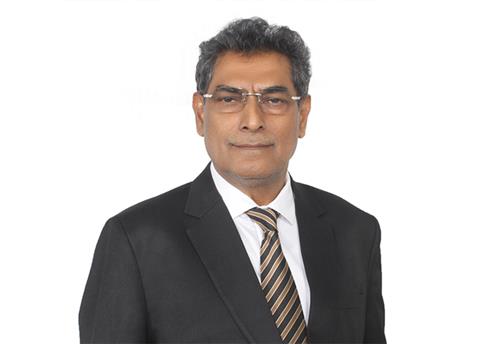
 Autocar Pro News Desk
Autocar Pro News Desk

